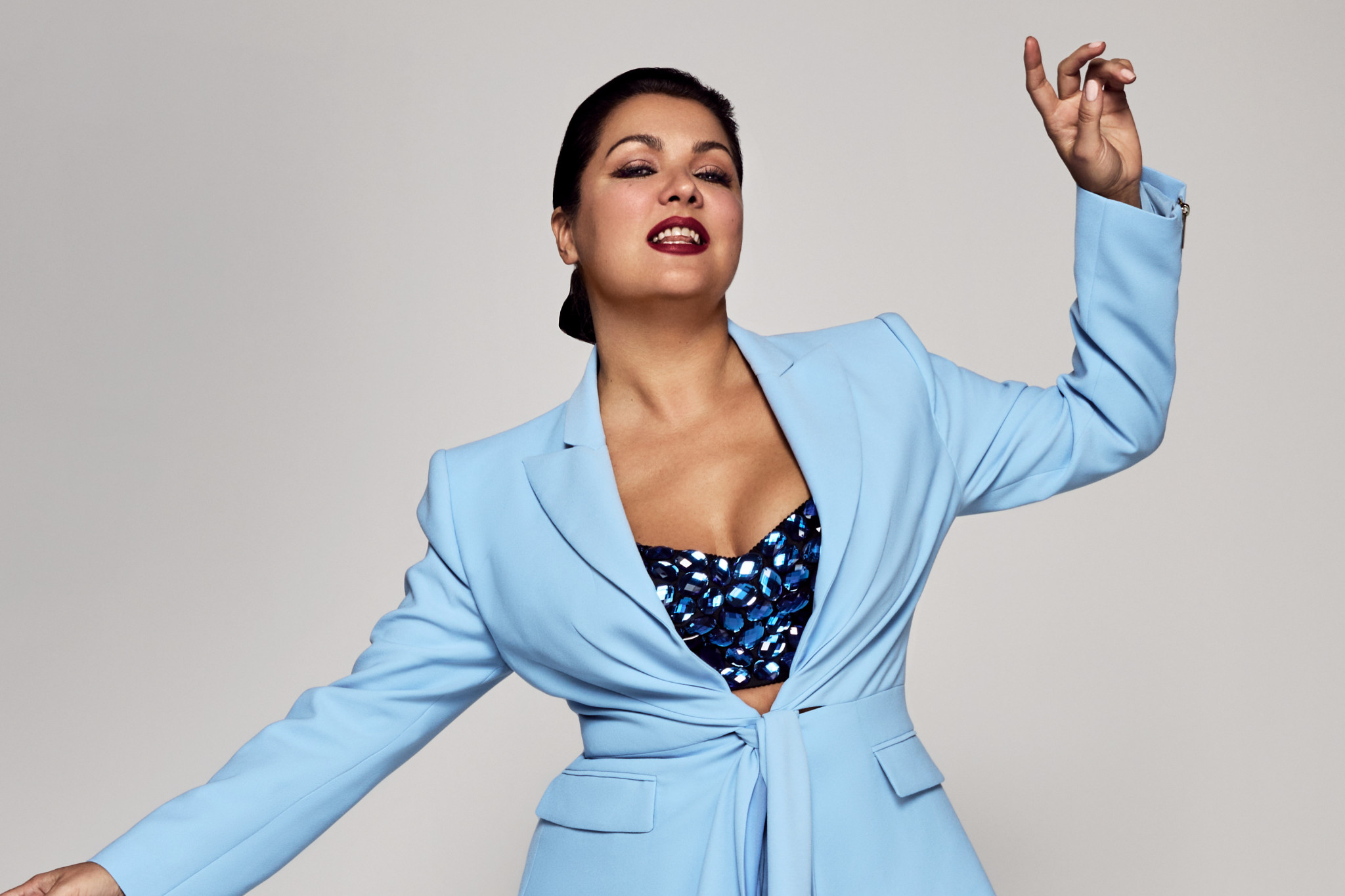Biography

Anna Netrebko began her career over 30 years ago and has arguably become a reigning prima donna of the 21st century. She signed with Deutsche Grammophon in 2003. The programme of her first album, Anna Netrebko – Opera Arias (2003), ranged from “Padre, germani, addio!” from Mozart’s Idomeneo to the “Lied an den Mond” from Dvořák’s Rusalka. Sempre libera and Russian Album followed, as well as complete recordings of Le nozze di Figaro and La bohème. Highlights of her DG discography included Souvenirs, In the Still of Night (a recital of Russian songs with Daniel Barenboim), Anna Netrebko: Live at the Metropolitan Opera and recordings of La traviata, I Capuleti e i Montecchi and Pergolesi’s Stabat Mater.
Netrebko’s DG videography grew with DVD/Blu-ray releases of La traviata, Le nozze di Figaro, I puritani, Manon, Lucia di Lammermoor, Don Pasquale and Anna Bolena, plus a DVD of music videos: Anna Netrebko: The Woman, The Voice. She was in the studio again in 2013 for the recording of Verdi, an album of arias by the iconic composer, and proved her affinity for the Romantic repertoire with complete recordings of Eugene Onegin, Giovanna d’Arco and Il trovatore. Other milestones in her recording activities are the CD Duets with Rolando Villazón; Richard Strauss’s Four Last Songs with Daniel Barenboim and the Staatskapelle Berlin (2014); Tchaikovsky’s Iolanta, Macbeth from the Metropolitan Opera, Don Giovanni from the Teatro alla Scala (2015), Manon Lescaut in a recording from the Salzburg Festival (2016), and the album Romanza with her husband, tenor Yusif Eyvazov (2017).
In recent years she has turned to more vocally demanding operatic roles such as Turandot, Tosca and Elsa (Lohengrin). The rich, darker tones of Anna Netrebko’s voice today were particularly evident on her Grammy-nominated DG album Verismo (2016), which she recorded with the Orchestra dell’Accademia Nazionale di Santa Cecilia and Sir Antonio Pappano, featuring excerpts from Madama Butterfly, Tosca, Manon Lescaut, Adriana Lecouvreur and Andrea Chénier. Amata dalle tenebre, Netrebko’s first classical solo album in five years, was released in November 2021; it was recorded at the Teatro alla Scala in Milan with the Orchestra del Teatro alla Scala and its music director Riccardo Chailly.
Born in 1971 in the southern Russian city of Krasnodar, Anna Netrebko devoted herself to singing from an early age. She later studied at the St. Petersburg Conservatory, where she was discovered and was able to take on minor roles at the Mariinsky Theatre. After the successful role debut of the 22-year-old singer at this house as Susanna in Le nozze di Figaro, she was accepted into the ensemble. Netrebko’s years in St. Petersburg provided a solid foundation of technique and stage experience. In 1995 she made her US debut with the San Francisco Opera; the following year she became a member of their Merola Opera Program for young artists and was soon singing at the leading international opera houses. Her performance as Donna Anna in Don Giovanni at the 2002 Salzburg Festival secured Netrebko a place among the top young singers.
Since 2002, Netrebko has performed regularly at the Metropolitan Opera – she has played no fewer than 22 roles at that house and appeared in 15 of its worldwide broadcasts “Live in HD” to cinemas. In Vienna, where Netrebko has lived for a long time (she became an Austrian citizen in 2006), she appears at the State Opera every season. She is also a frequent guest at the Royal Opera House, Covent Garden, the Teatro alla Scala in Milan, the Opéra national de Paris and the Arena di Verona.
Netrebko’s portrayals of opera’s most iconic heroines throughout her career demonstrate a remarkable range and artistic sensibility. Her interpretations span Mozart operas, bel canto masterpieces (including Bellini’s La sonnambula and Donizetti’s Anna Bolena), French chefs-d’oeuvre (Massenet’s Manon and Gounod’s Roméo et Juliette), Puccini (from La bohème to Turandot), Verdi (from La traviata to Aida to Macbeth), verismo (Giordano’s Andrea Chénier and Cilea’s Adriana Lecouvreur), Tchaikovksy (from Iolanta to Eugene Onegin), Wagner’s Lohengrin, and much more. Netrebko’s insatiable curiosity about operatic repertoire promises further role debuts in upcoming seasons.
Recent role debuts include Verdi’s Giovanna d’Arco in the opening performance of the 2015/16 season at the Teatro alla Scala in Milan – the work’s first performance there since the mid−1860s; Elsa (Lohengrin) at the Dresden Semperoper in 2016 (released the following year as the first opera recording in Ultra HD 4K by Deutsche Grammophon); Aida at the Salzburg Festival (2017), Maddalena (Andrea Chénier) at the Teatro alla Scala in Milan (2017), Tosca at the Met (2018), Leonora (La forza del destino) at Covent Garden (2019), Turandot in Munich (2020), Elisabetta (Don Carlo) at the Bolshoi Theatre (2020) and Abigaille (Nabucco) at the Staatstheater Wiesbaden (2023). La Gioconda will follow in 2024, at the Salzburg Easter Festival, as well as several other roles in future seasons.
In addition to regularly headlining productions with the world’s leading opera companies, Netrebko has appeared extensively in concerts and recitals across five continents. Her performances in celebration of the World Cup openings at Berlin’s Waldbühne amphitheatre in 2006 and in Moscow’s Red Square in 2018 were both internationally televised events. A devoted mother, she is an ardent defender of the causes of underprivileged children through the various associations that she has supported for many years.
06/2023